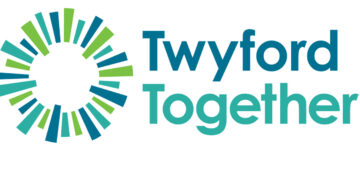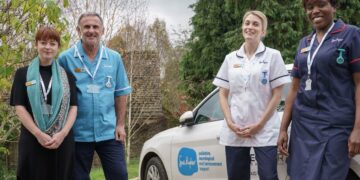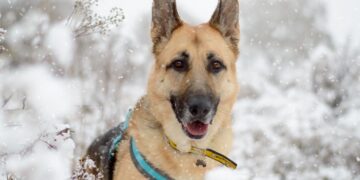THE NHS has announced that it has begun to offer vaccinations against Respiratory Syncytial Virus (RSV) for the first time.
While very common, RSV is one of the leading causes of infant mortality around the world as some are at risk of becoming seriously ill as a result of the virus.
These include babies under six months old or young children who were born prematurely, adults over 75, people with weakened immune systems or long-term heart and lung conditions, people who smoke tobacco, and babies who have been exposed to tobacco smoke.
In babies, RSV can lead to pneumonia.
The NHS is offering vaccinations to pregnant women and older adults, including those aged over 75.
It is also offering a one-off “catch-up” vaccination to those aged between 75-79 ahead to make sure they are protected ahead of the winter.
Pregnant women will be eligible from 28 weeks into their pregnancy up until they give birth.
Pregnant patients are advised to speak to their maternity care providers about receiving the vaccine, but they can also consult their GP.
The NHS has released figures showing that women who receive the vaccination see around a 70% reduction in severe lung infections in the first six months of their babies’ lives.
Getting vaccinated while pregnant gives the best chance of protection for the baby against serious illness as a result of RSV.
This is because the boost to the mother’s immune system allows it to produce more viral antibodies, which in turn protects the baby from the moment they’re born.
The virus is one of the main causes of winter pressures faced by children’s hospitals each year, especially children’s intensive care units.
Cases observed in children have been increasing in recent years according to NHS figures, with an increase of 11% in peak numbers of cases in December 2023 compared to the previous year.
RSV is transmitted through coughing and sneezing by someone who has the virus.
The NHS advises keeping newborn babies away from those with cold or flu symptoms, particularly if they were born prematurely or have weakened immune systems.
Symptoms of RSV include a runny or blocked nose, a cough, sneezing, tiredness, and a high temperature.
If it develops into a more serious condition, patients may experience a worsening cough, shortness of breath, faster breathing or long gaps between breaths, and confusion in older adults.
In babies, they may have difficulty feeding or a loss of appetite, as well as noisy or wheezing breaths.
The vaccination rollout is taking place alongside annual programmes vaccinating against flu and COVID-19 ahead of the winter.
Flu vaccinations will be offered to pregnant women and most children from this month, and they will also be offered to others eligible alongside the COVID-19 vaccine from Thursday, October 3.
Kaye Wilson, Chief Midwife for NHS South East, said: “After months of preparation from our hardworking staff, for the first time ever we are now offering the RSV vaccine to pregnant women and older adults at greatest risk – helping to protect the lives of those vulnerable and ease pressures across the NHS as winter approaches.
“Many people are still unaware of this virus, which can sometimes lead to severe lung infections such as pneumonia and infant bronchiolitis–it is also a leading cause of infant mortality worldwide.
“The vaccine can reduce the risk of severe bronchiolitis by 70% in the first six months of life.
“Receiving the vaccine during every pregnancy is the best way to protect your baby against RSV. The vaccine enhances your immune system to produce more antibodies against the virus, which then pass through the placenta to help protect your baby from birth.
“I would encourage you to get the RSV vaccine at your 28-week antenatal appointment or speak to your maternity team.”
More information about Respiratory Syncytial Virus and vaccinations are available via: nhs.uk/conditions/respiratory-syncytial-virus-rsv











































